On Friday 4th October 2024, we invited our new cohort of postgraduate researchers to our Withington campus for our Manchester Cancer Research Centre – Division of Cancer Sciences Postgraduate Researcher Welcome Event.
This special event provided a warm welcome to MB-PhD, Clinical PhD and Non-Clinical PhD students starting their postgraduate research studies in 2024 and gave a detailed overview of the MCRC, DCS and our vibrant research community.
Throughout the day, students heard talks from the MCRC Training Office, Communications Team, Education Chairs, current postgraduate researchers, and discover the many resources available to support them through their postgraduate careers in Manchester. Students also had the chance to network with the staff and fellow students and start building connections within the MCRC-DCS community.
I was able to meet our new cohort one-on-one and discuss exciting hopes for the future. I am looking forward to hearing about developments from all of our incredible students.
Professor Rob Bristow
Director of the Manchester Cancer Research Centre
Get to know some of our new students
To help you get to know some of our new postgraduate researchers, we asked them to summarise what inspired them to apply for a PhD in Manchester and what they’re looking forward to most about their PhD.
Here’s what a few of our students had to say:
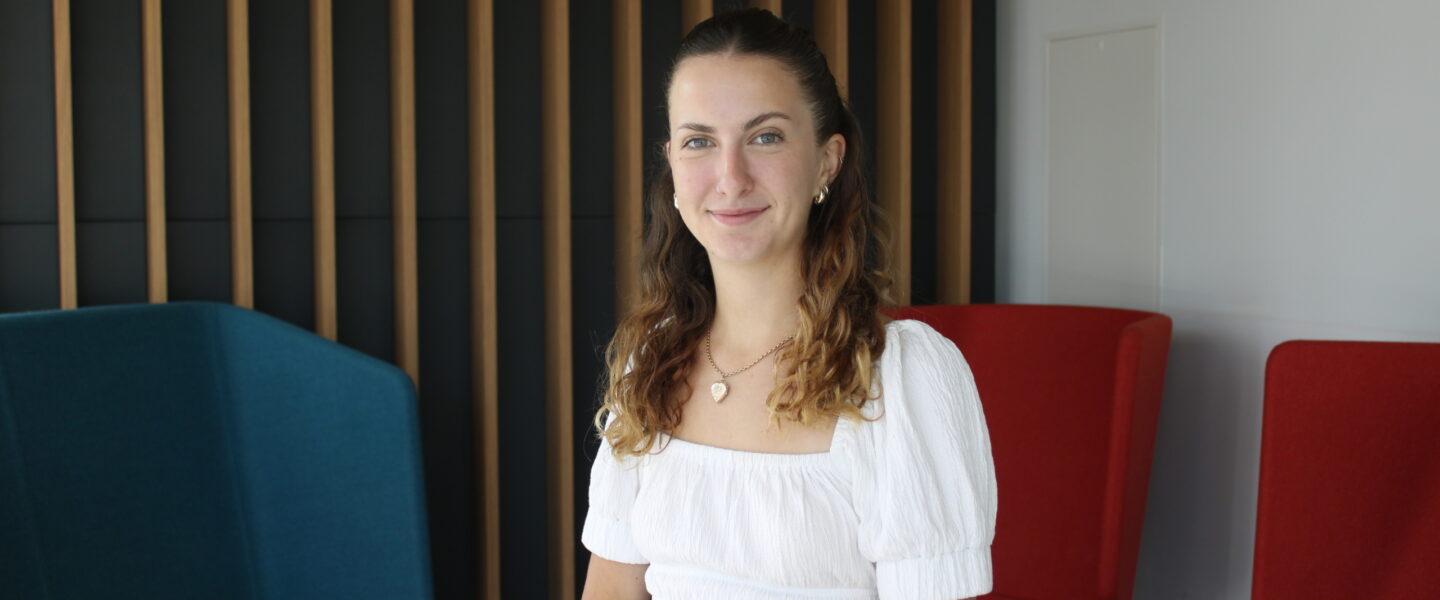 PhD Programme: Cancer Research UK MB-PhD Student
PhD Programme: Cancer Research UK MB-PhD Student
Lead Supervisor: Dr Andre Freitas
PhD Title: Evaluation of AI and Digital Technologies in Clinical Decision Making.
What inspired you to apply for a PhD in Manchester?
My journey to a PhD in cancer sciences begins in GCSE biology class when I first heard about monoclonal antibodies and immediately became fascinated by the capabilities of medicine. At this point I knew I wanted to be a scientist but wasn’t sure where I fitted into the big world of medicine. Before starting university, I worked as a Nursing Assistant and of all the patients that I worked with, one man sticks out. He was having chemotherapy after surgery and unable to live at home. He was often too tired to leave his bed but made every effort to and put on his finest suit when his wife was coming to visit. The commitment he showed to be there for his loved ones reminded me of my own family. I hope to become a surgeon with an interest in research so that I can help more people spend more time with those they love. My choice to study an AI focused PhD comes from the same excitement as in that GCSE biology class.
What are you most looking forward to about your PhD?
I am excited that AI and digital technologies are such a rapidly developing area of medicine and could massively impact the NHS. These are tools that can learn and contribute dramatically to a patient’s journey. I am both fascinated and cautious of the potential of AI and can’t wait to see how the field changes and grows over the next three years.
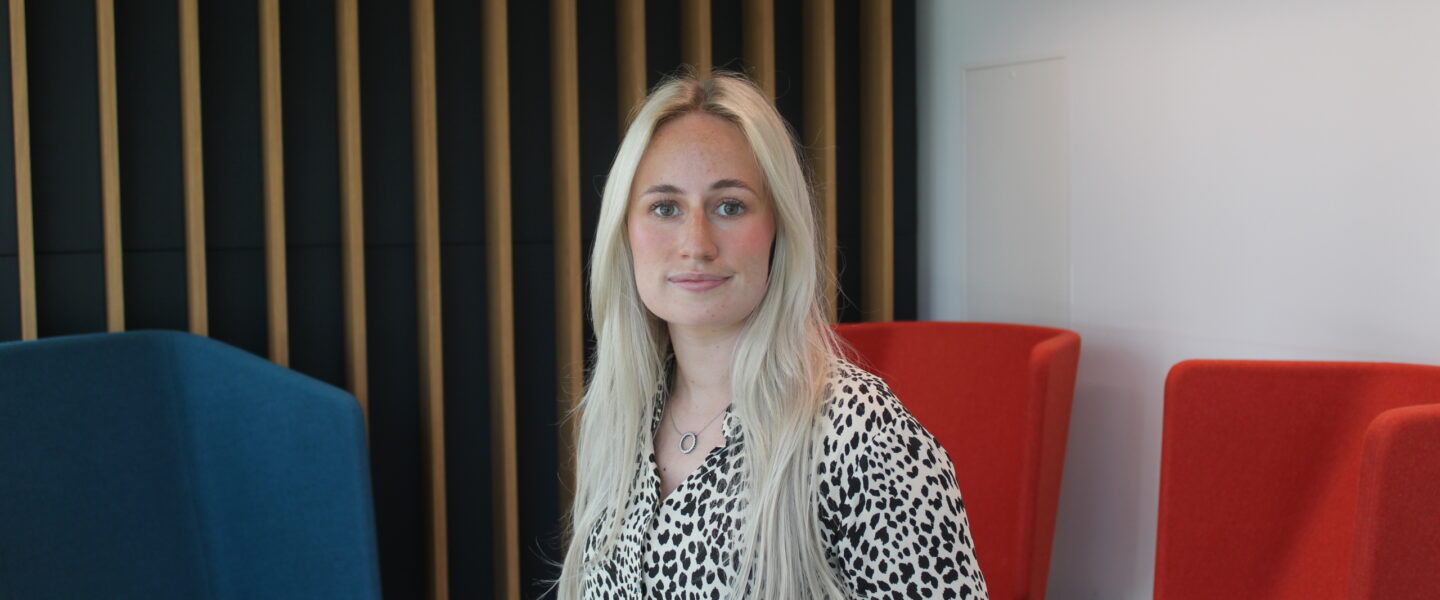 PhD Programme: Cancer Research UK MB-PhD Studentship
PhD Programme: Cancer Research UK MB-PhD Studentship
Lead Supervisor: Professor Angeliki Malliri
PhD Title: Applying patient-derived RAS-mutant models for identification of optimal combination approaches
What inspired you to apply for a PhD in Manchester?
Originally from Derby/Nottingham, I recently completed an intercalated MSc in Oncology Research at The University of Manchester after my third year of medicine at The University of Leeds. I thoroughly enjoyed my Master’s year at the Manchester Cancer Research Centre (MCRC), where I had the opportunity to work closely with Dr Colin Lindsay and his team. During this time, I learned so much in such a short period, which only deepened my passion for research. I realised that I wasn’t ready to pause my research training and return to medical school, so the MB-PhD programme felt like the perfect next step. Ultimately, my goal is to become the best doctor I can be, and I firmly believe that a strong foundation in science and research is essential for achieving this goal.
In addition to my love for Manchester as a city, I chose to apply for a PhD here because I believe it offers an unparalleled environment for cancer research. The Christie and its proximity to the Oglesby and Paterson Buildings creates a unique multidisciplinary environment, perfect for collaboration between clinicians and scientists. Access to state-of-the-art cancer research facilities and close connections to patients enable us to draw from each other’s expertise and drive innovations in cancer care. I was inspired by the many talented and supportive people I worked with during my Master’s, who work across a wide range of roles. I was welcomed as a valued member of the team and everyone’s enthusiasm motivates me to be a part of the impactful translational work they do. I am so grateful for their encouragement and belief in my abilities which have continuously pushed me to achieve my best and I am excited to see what the next three years will bring!
What are you most looking forward to about your PhD?
The exciting translational research being completed within Prof. Malliri and Dr Lindsay’s groups, alongside the genuine support and drive amongst all members, is something that I am looking forward to being a part of. The strive to not only produce meaningful results but also support one another, collaborate ideas, and progress as a group is what, I believe, makes the most effective research team capable of making significant impacts in the field. Having witnessed their inspiring teamwork, I am excited to continue my work under their expert guidance and supervision and further develop my research skills. I am particularly looking forward to meeting and learning from the other PhD students and faculty members and gaining the knowledge and understanding to start formulating my own research questions that I will take forward into my future clinical academic career.
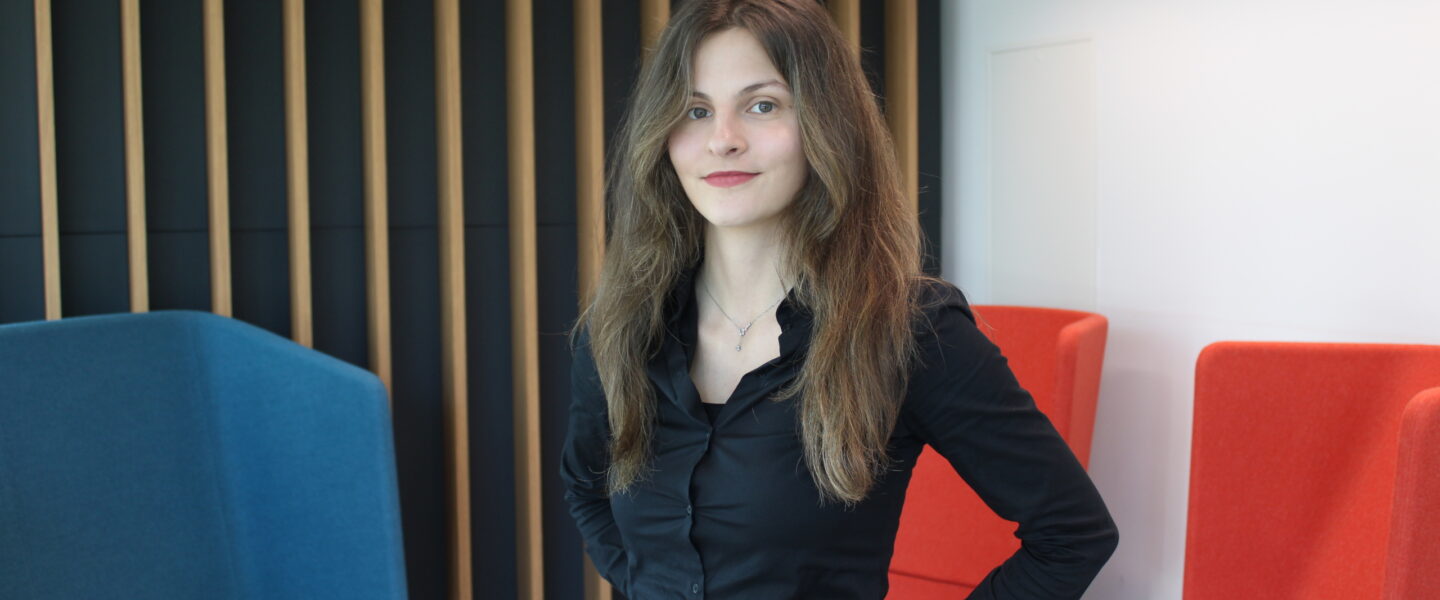 PhD Programme: Sear Family Cancer Research Scholarship Non-Clinical Studentship
PhD Programme: Sear Family Cancer Research Scholarship Non-Clinical Studentship
Lead Supervisor: Dr Cathy Tournier
PhD Title: Exploring p38alpha MAPK as a therapeutic target for lung adenocarcinoma
What inspired you to apply for a PhD in Manchester?
I am originally from Bulgaria and moved to the UK for my integrated Master’s degree in Biological Sciences at The University of Leeds. During my final year, I worked on HPV-driven cervical cancer, where the findings of my project contributed to a deeper understanding of how the virus manipulates host signalling pathways to drive carcinogenesis. This experience sparked my interest in cancer biology, shaping both my research focus and passion for the future, as I believe this is one of the most crucial areas of research due to its complexity and medical importance. I am particularly fascinated by the science of signalling pathways, which act as essential communication networks within and between cells. They are vital for cellular homeostasis, but their dysregulation can drive cellular transformation and contribute to diseases including cancer. Therefore, I am eager to learn more about this area of biology in another critical type of malignancy, non-small cell lung cancer (NSCLC). Additionally, I am excited by the immunological aspect of this project, as p38α MAPK is a master regulator of inflammation. I am highly intrigued by how cancerous cells evade immunosurveillance and how we could use this knowledge to develop innovative therapies.
What are you most looking forward to about your PhD?
The opportunity to investigate, challenge, and contribute to the field of cancer biology drives my commitment to PhD-level research. While I have always enjoyed academic work, putting my studies into practice and researching a subject I am passionate about has always been more exciting to me. I chose Manchester for my PhD because it is one of the world’s leading hubs for cancer research, and home to cutting-edge research facilities, such as the MCRC and The Christie. Moreover, the MCRC Lung Cancer Research group make the city an outstanding place to pursue my PhD in lung cancer due to their world-leading expertise in the subject and translational research focus. Therefore, what I am most looking forward to in my upcoming PhD is the opportunity to immerse myself in meaningful research that has the potential to positively impact cancer treatment. Equally important to me is the chance to meet and collaborate with new people who share my interests and passion for science. I feel very excited to join a community of researchers, both peers and mentors, where I can build lasting relationships while working toward shared goals. In my opinion, being part of such an environment is incredibly motivating, as it is the best way for me to become a better researcher, to develop my future career in science and most importantly, to make the most of my PhD journey.
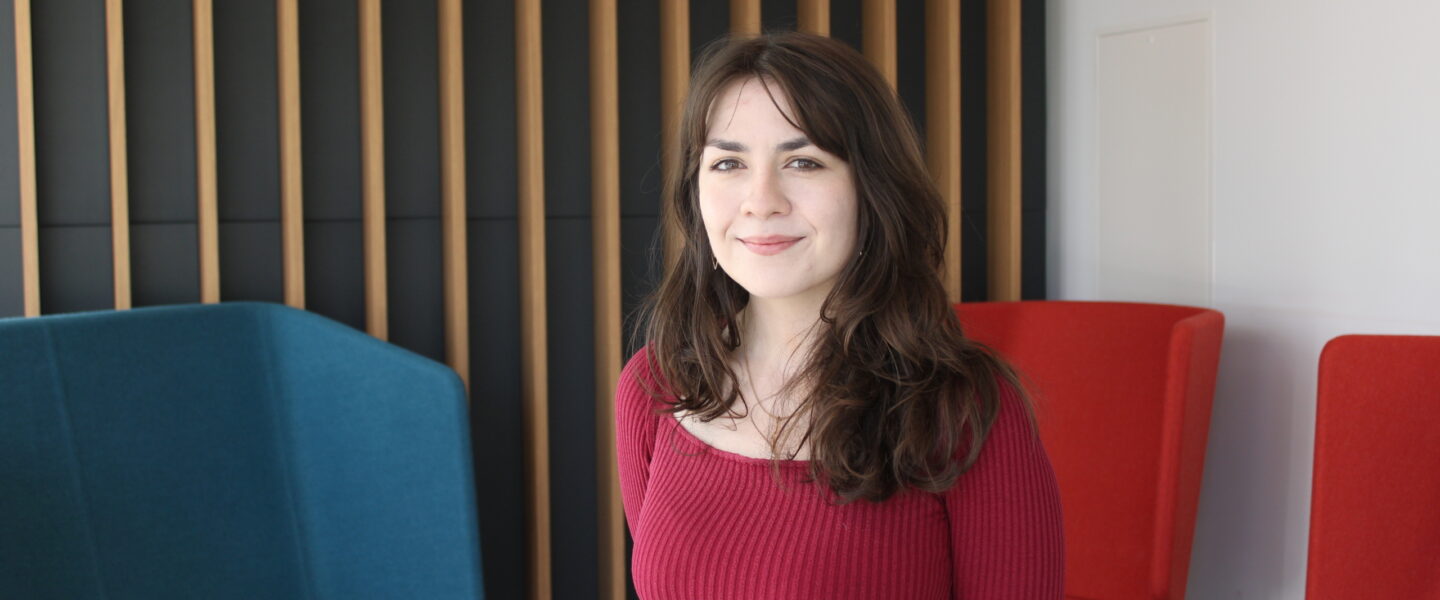 PhD Programme: Cancer Research UK Non-Clinical Studentship
PhD Programme: Cancer Research UK Non-Clinical Studentship
Lead Supervisor: Professor Marcel Van Herk
PhD Title: Tumour physiology dynamics and their link to radiation dose distributions in patients with cervical cancer treated with radiotherapy.
What inspired you to apply for a PhD in Manchester?
I completed my bachelor’s in physics at Swansea University. At the end of this course, in part due to the impact of covid, I felt lost as to where to go next. Unfortunately, at this time, my twin brother was diagnosed with a rare tumour (he fortunately remains in remission). This moment, whilst devastating, pushed me to study cancer, and find a way I can contribute. A year later I was enrolled on a Master’s with The University of Manchester in Cancer Biology and Radiotherapy Physics. The course in question was fantastic; it provided me with the opportunity to see how special Manchester is for cancer research. Continual multi-disciplinary research stems from collaborations between well-established and world-leading organisations, something The University of Manchester, The Christie and Cancer Research UK seem assured to continue. There was little doubt for me that this was the place that will provide me with the best opportunities to start my career in academia.
What are you most looking forward to about your PhD?
I am mostly excited to begin working with my team. They have already been so welcoming, and it is clear they have real enthusiasm and passion for their work, which is infectious. And of course I am excited to start my research and contribute to the fight to beat cancer!
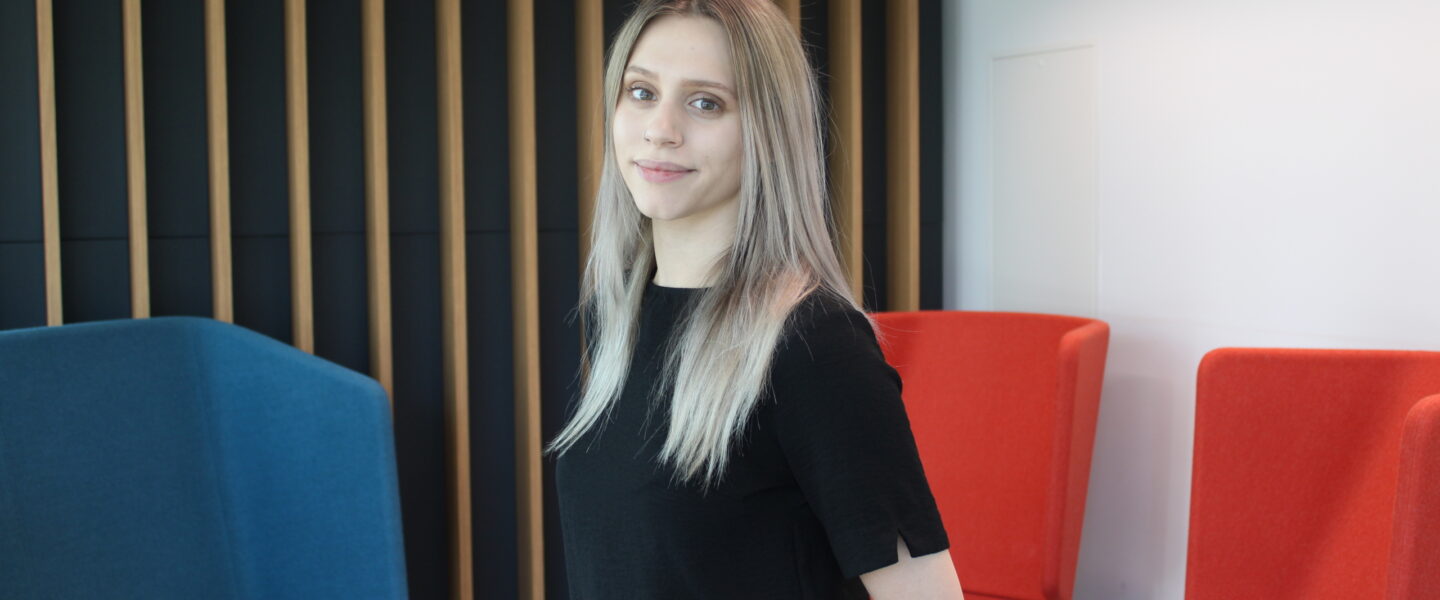 PhD Programme: Cancer Research UK Non-Clinical PhD Studentship
PhD Programme: Cancer Research UK Non-Clinical PhD Studentship
Lead Supervisor: Dr Andrew Gilmore
PhD Title: Deciphering the mechano-signalling crosstalk between mammary fibroblasts and mammary epithelial cells in high mammographic density tissue
What inspired you to apply for a PhD in Manchester?
I was inspired to apply for a PhD at Manchester due to its reputation as a research-led university which focuses on innovation, making an impact and collaboration- something which my project is deeply rooted within. The links that the University of Manchester has to the MCRC, the Wellcome Trust Centre for Cell-Matrix Research, The Christie and Manchester Breast Centre alongside the university’s own core facilities further inspired me to apply for this project as this level of subject expertise will help to push the boundaries of my knowledge and skillset to become a well-rounded researcher.
My decision to apply for a PhD at Manchester was also strongly influenced by the supervisory team for my project which is comprised of five academics each with their own area of speciality, including a clinician. This struck me as a unique benefit both of the project and of studying at the University of Manchester and is something which will, again, provide me with an enhanced level of expertise and knowledge to learn from and help to give me the momentum to hit the ground running. The project itself as well really appealed to me due to its links to improving the understanding of a risk factor of breast cancer, a cause which is close to my heart. As well as this, coming from a small town in Warwickshire and completing both my Bachelors and Masters degrees in Sheffield, I am looking forward to a change of scenery in a bigger city and experiencing life at the University of Manchester as a part of its academic community.
What are you most looking forward to about your PhD?
What excited me most about beginning this PhD is the opportunity to engage in my own original research and tackle new challenges head-on. I am hopeful that the findings of my research will contribute something meaningful to the field and provide insights into the mechanisms behind high mammographic density as a risk factor for breast cancer. I am excited to push myself to grow both personally and professionally while working alongside researchers whose work aligns with my own research interests. Finally, I am looking forward to getting to know the other PhD students in the lab and collaborating and working alongside them.
 PhD Programme: Cancer Research UK Leeds-Manchester Clinical Research Training Fellowship
PhD Programme: Cancer Research UK Leeds-Manchester Clinical Research Training Fellowship
Lead Supervisor: Dr Natalie Cook
PhD Title: Incorporating genomic testing and tissue of origin predictions into the management of patients with Carcinoma Unknown Primary (CUP)
What inspired you to apply for a PhD in Manchester?
I wanted to undertake a PhD in an innovative, forward-thinking research environment supported by ambitious, world-renowned clinicians and scientists – and Manchester ticked all the boxes! It boasts state-of-the art lab facilities, the largest single-site cancer hospital in Europe, and a plethora of inspiring researchers which I felt was the perfect combination to help advance both my academic and clinical career.
There is also a dynamic, highly motivated and successful CUP research team in Manchester who are making significant advances in the area and leading the way internationally. The opportunity to be part of a team producing practice-changing research which could benefit patients with CUP was one of the main driving forces behind my decision to apply for this PhD.
What are you most looking forward to about your PhD?
CUP is an area of significant unmet clinical need which necessitates ground-breaking research which I’m excited to be part of! I’m looking forward to learning wet-lab skills under the guidance of the expert team at the National Biomarker Centre, immersing myself in new areas of knowledge such as clinical trial methodology and health economics, and hopefully discovering something which could improve our management of CUP patients and their outcomes.
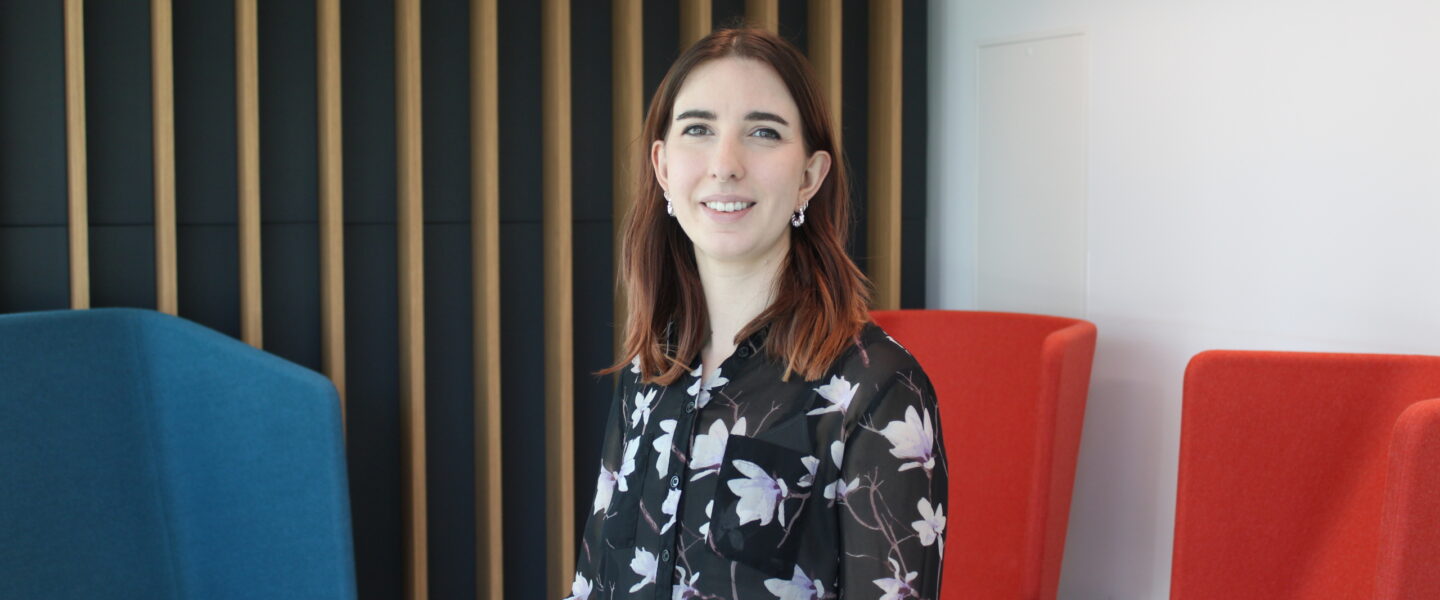 PhD Programme: Cancer Research UK Clinical Research Training Fellowship
PhD Programme: Cancer Research UK Clinical Research Training Fellowship
Lead Supervisor: Dr Sarah Kitson
PhD Title: Developing endometrial cancer prevention strategies for women from diverse ethnic backgrounds.
What inspired you to apply for a PhD in Manchester?
I’m an Obstetrics & Gynaecology doctor with an academic background in public health, and so I was looking for a PhD project that would address health inequalities in gynaecology and would have relevance to national (and maybe even global) health policy. This team at The University of Manchester was recommended to me and is internationally renowned for their research on gynae cancer early detection and prevention. The project will involve a variety of different methodologies which I’m keen to learn and will be very useful for my future policy work. And on a personal note, I very much wanted to get back to a big city and enjoy all that Manchester has to offer.
What are you most looking forward to about your PhD?
I’m looking forward to building relationships with the diverse communities of Manchester, and collaborating with and learning from gynae-oncology research teams all over the world. I’m also excited for all the challenges: I will be practicing some academic skills I haven’t used regularly since my Master’s in Public Health, and I’ll be learning to manipulate large datasets and perform economics analyses. The gynae-oncology research team here at Manchester are already incredibly friendly and warm, so I’m also looking forward to getting to know them all better and hopefully make some new friends!


